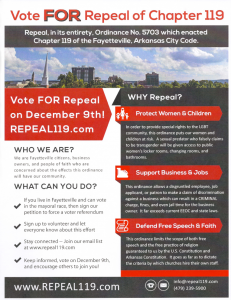Family Council Releases 2014 Arkansas Voter’s Guide
FOR IMMEDIATE RELEASE
Friday, September 5, 2014
On Friday, Family Council released its 2014 Arkansas Voter’s Guide.
Family Council President Jerry Cox issued a statement saying, “We are pleased to provide the People of Arkansas with this service. The Arkansas Voter’s Guide has been the state’s leading source of nonpartisan candidate information for more than two decades. This is an opportunity for Arkansans of all political persuasions to learn where candidates stand on issues that matter to them.”
Cox said this year’s guide focuses on a variety of issues. “We asked candidates where they stand on issues ranging from abortion to Common Core and from marriage to Medicaid. Our goal is to help Arkansans get as clear a picture as possible of who their candidates are, and I think this guide does that.”
Cox said he is pleased with the number of candidates who completed the survey. “We surveyed every candidate for state or federal office who has an opponent. A little over seventy-percent of the candidates answered our survey questions. That tracks pretty well with the response rates we have seen since we published our first Arkansas Voter’s Guide in 1990.”
Cox said the 2014 Arkansas Voter’s Guide is available at www.ArkansasVotersGuide.com. Arkansans may also request free, printed copies of the guide by calling Family Council at (501) 375-7000.
Cox said he believes it is important that voters understand where their candidates stand on important issues before heading to the polls. “The way I see it, candidates are like job applicants, and the voters are the ones doing the hiring. You wouldn’t hire someone to work for you without sitting down and learning a little about them first. Our voter’s guide is just one way Arkansans can do that.”

 A group of concerned citizens are hard at work gathering signatures to bring controversial Fayetteville Chapter 119 (the so-called “nondiscrimination” ordinance) up for a vote of the people.
A group of concerned citizens are hard at work gathering signatures to bring controversial Fayetteville Chapter 119 (the so-called “nondiscrimination” ordinance) up for a vote of the people.